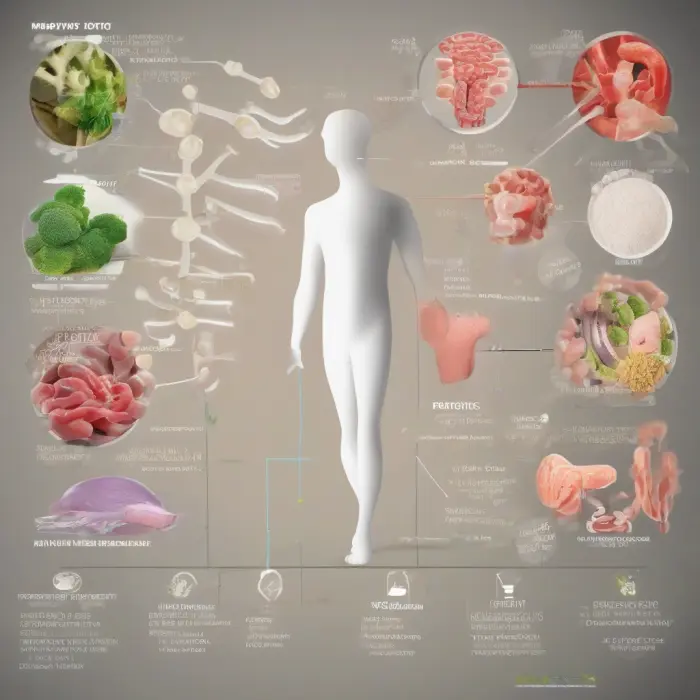The Role of Nutrition in Fertility: Tips for Reproductive Health
Fertility is shaped by many factors, and nutrition is one you can influence every day. What you eat affects hormones, egg and sperm quality, ovulation, menstrual regularity, implantation, and early embryonic development. Because eggs and sperm mature over about 2–3 months, nutrition and lifestyle changes made today can support reproductive health in the near future for all genders.
This guide provides evidence-informed, practical nutrition tips for people trying to conceive. It is educational and not a substitute for personalized medical care. If you have a condition like PCOS, thyroid disease, endometriosis, or nutrient deficiencies, speak with your clinician or a registered dietitian for tailored guidance.
How Nutrition Influences Fertility
- Hormone balance: Nutrients and overall energy intake influence production of reproductive hormones that regulate ovulation and spermatogenesis.
- Egg and sperm quality: Antioxidants and omega-3 fats help counter oxidative stress and support membrane integrity and mitochondrial function.
- Metabolic health: Stable blood sugar and insulin sensitivity support regular cycles and ovulation, particularly in insulin-resistant states.
- Inflammation and the microbiome: Fiber, polyphenols, and healthy fats can lower chronic inflammation and support a gut microbiome linked to hormone metabolism and immune function.
Key Nutrients for Reproductive Health
Folate (Folic Acid)
Folate supports DNA synthesis and early neural tube development. Most people trying to conceive are advised to take a daily supplement with 400–800 mcg folic acid beginning at least one month before conception and continuing through early pregnancy, alongside folate-rich foods (leafy greens, legumes, citrus). Ask your clinician about your specific needs.
Iron
Iron deficiency can affect ovulation and energy levels. Aim for iron-rich foods (lean red meat, poultry, beans, lentils, tofu, spinach) and pair plant sources with vitamin C to boost absorption. The RDA for premenopausal women is 18 mg/day. Your provider may recommend testing and supplementation if needed.
Iodine
Essential for thyroid hormones and early fetal development. Dietary sources include dairy, seafood, and iodized salt. Many prenatals include ~150 mcg iodine; confirm your supplement does and discuss with your clinician if you have thyroid concerns.
Vitamin D
Important for hormone regulation and immune health. The general RDA is 600 IU (15 mcg)/day. Many adults have low levels; consider a blood test to guide supplementation.
Vitamin B12
Needed for DNA synthesis and methylation. Found in animal foods; vegans should supplement or use fortified foods. The RDA is 2.4 mcg/day for adults.
Choline
Supports methylation, cell membranes, and early brain development. Eggs, lean meats, soy, and cruciferous vegetables are good sources. The adequate intake is 425 mg/day for women and 550 mg/day for men; many prenatals lack sufficient choline, so check labels.
Omega-3 Fats (EPA and DHA)
Important for hormone signaling, egg and sperm membranes, and early development. Aim for 1–2 servings per week of low-mercury, oily fish (salmon, sardines, trout, herring, anchovies, pollock, shrimp). Many prenatals provide 200–300 mg DHA. If you don’t eat fish, consider an algae-based DHA supplement.
Zinc and Selenium
Zinc supports hormone production, ovulation, and sperm quality (oysters, beef, pumpkin seeds, legumes). Selenium is an antioxidant involved in thyroid function and sperm health (Brazil nuts, seafood, eggs). Typical adult needs: zinc 8 mg/day (women), 11 mg/day (men); selenium 55 mcg/day.
Antioxidants and Polyphenols
Vitamins C and E, carotenoids, and plant polyphenols help counter oxidative stress affecting eggs and sperm. Eat a variety of colorful fruits and vegetables, nuts, seeds, cocoa, tea, and coffee (within caffeine limits).
Fiber and Carbohydrate Quality
Fiber helps stabilize blood sugar and supports a healthy microbiome. Choose whole grains, beans, lentils, fruits, and vegetables; emphasize lower-glycemic carbs to support ovulatory health, especially if you have insulin resistance.
Dietary Patterns That Support Fertility
- Mediterranean-style eating: Emphasizes vegetables, fruits, legumes, whole grains, nuts, extra-virgin olive oil, fish, and modest dairy; associated with improved fertility markers in several studies.
- Healthy fats: Prioritize olive oil, avocados, nuts, seeds; limit trans fats and minimize ultra-processed foods.
- Protein balance: Include plant proteins (beans, lentils, tofu, tempeh) along with fish, eggs, and fermented dairy; consider rotating animal proteins with plant-based options.
- Hydration: Keep fluids consistent throughout the day; water, sparkling water, and herbal teas are good choices.
Special Considerations
PCOS and Insulin Resistance
- Focus on high-fiber, low-glycemic carbohydrates and balanced meals that pair carbs with protein and healthy fat.
- Regular, enjoyable movement and consistent sleep support insulin sensitivity.
- Some supplements (e.g., inositol) are studied for ovulatory function; discuss with your clinician before starting.
Endometriosis
- Pattern your plate around anti-inflammatory foods: colorful produce, omega-3-rich fish, nuts, seeds, and extra-virgin olive oil.
- Limit alcohol and ultra-processed foods that can promote inflammation.
Thyroid Health
- Adequate iodine and selenium are important; avoid excessive iodine or kelp-based supplements unless directed by your clinician.
- If you have thyroid disease, coordinate diet and supplements with your healthcare team.
Vegetarian or Vegan Diets
- Plan for vitamin B12, iron (with vitamin C), zinc, iodine (iodized salt), choline (eggs if lacto-ovo, or soy/legumes), and omega-3s (ALA from flax/chia/walnuts; consider algae-based DHA).
Male Fertility
- Support sperm count, motility, and morphology with a Mediterranean-style pattern, adequate zinc, selenium, vitamin D, antioxidants, and omega-3s.
- Maintain a healthy weight, limit alcohol, avoid tobacco, and minimize heat exposure to the groin (e.g., prolonged hot tubs).
What to Limit or Avoid
- Alcohol: There is no known safe amount in pregnancy; many choose to avoid alcohol when trying to conceive. If you drink, discuss risks with your clinician.
- Caffeine: Keep total intake at or below about 200 mg/day (roughly two small cups of coffee), especially after ovulation.
- High-mercury fish: Avoid shark, swordfish, king mackerel, tilefish, and bigeye tuna. Choose low-mercury options most of the time.
- Trans fats and highly processed snacks: Linked with poorer ovulatory function; check labels for “partially hydrogenated oils.”
- Excess preformed vitamin A (retinol): Avoid megadoses; beta-carotene from plants is safe.
- Unpasteurized foods and food safety risks: Use pasteurized dairy and juices, cook meats and eggs thoroughly, and handle seafood safely.
Supplements: How to Choose
- Start a prenatal early: Many people begin a prenatal multivitamin 1–3 months before trying to conceive. Look for folic acid or methylfolate (400–800 mcg), iodine (150 mcg), iron (if needed), vitamin D, B12, and ideally choline and DHA (or add a separate DHA).
- Personalize when appropriate: Consider testing for vitamin D and iron status; supplement only as needed to avoid excess.
- Quality matters: Choose third-party tested brands (e.g., USP, NSF) and avoid megadoses without medical guidance.
Practical Eating Tips
- Build balanced plates: Half non-starchy vegetables; one-quarter protein; one-quarter whole grains or starchy vegetables; add a spoonful of healthy fat.
- Simple fertility-friendly ideas: Oatmeal with berries, chia, and yogurt; lentil or bean salads with olive oil; salmon with quinoa and greens; tofu stir-fry with mixed vegetables; frittata with spinach and tomatoes; Greek yogurt with walnuts and fruit.
- Snack smart: Fruit plus nuts, hummus with vegetables, whole-grain crackers with cheese or edamame.
- Plan your seafood: Aim for 1–2 servings/week of low-mercury fish; vary species; consider canned salmon or sardines for convenience.
- Make changes gradually: Consistency over weeks to months matters more than perfection on any single day.
Weight, Sleep, Stress, and Movement
- Weight: Both under- and overweight can affect ovulation and sperm parameters. Small, sustainable changes and gentle movement can help; avoid crash diets.
- Sleep: Aim for 7–9 hours of quality sleep to support hormone rhythms and metabolic health.
- Movement: Regular moderate activity (e.g., brisk walking, strength training) supports insulin sensitivity and mood.
- Stress: Chronic stress can disrupt cycles; consider mindfulness, therapy, time in nature, and social connection.
When to Seek Personalized Help
- Irregular or absent periods, known endocrine disorders, or signs of nutrient deficiencies (e.g., profound fatigue, hair loss) warrant evaluation.
- If you’re under 35 and have been trying for 12 months, or 35+ and trying for 6 months, consult a fertility specialist.
Work with your healthcare provider or a registered dietitian experienced in fertility to tailor nutrition, supplements, and lifestyle strategies to your situation.










